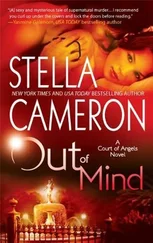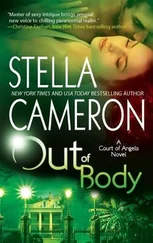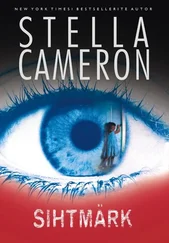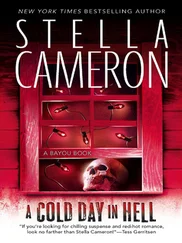A Grave Mistake
Stella Cameron
 www.mirabooks.co.uk
www.mirabooks.co.uk
For Julian and Gerry Savoy, proud Cajuns
who answer all those questions.
Laissez les bon temps rouler!
Prologue
Chapter 1
Chapter 2
Chapter 3
Chapter 4
Chapter 5
Chapter 6
Chapter 7
Chapter 8
Chapter 9
Chapter 10
Chapter 11
Chapter 12
Chapter 13
Chapter 14
Chapter 15
Chapter 16
Chapter 17
Chapter 18
Chapter 19
Chapter 20
Chapter 21
Chapter 22
Chapter 23
Chapter 24
Chapter 25
Chapter 26
Chapter 27
Chapter 28
Chapter 29
Chapter 30
Chapter 31
Chapter 32
Chapter 33
Chapter 34
Chapter 35
Chapter 36
Chapter 37
Chapter 38
Chapter 39
Chapter 40
Chapter 41
Epilogue
Near Chartres Street, New Orleans, Louisiana, 1:35 a.m.
His feet were wet.
Shit, why hadn’t he kept his mouth shut back there? Why had he asked for money?
He could still hear it, the jazz in that place, music as old as this town, older, the rhythm thumping, but not as fast or hard as the blood at his temples.
The goons they’d sent after him were too slow to have seen for sure where he’d taken a right off Chartres Street. Deep in a doorway, neon lights laying bright stripes on the soaked street, Pip Sedge couldn’t hold the breaths that burned his lungs, hurt his heart, so he pulled up one side of his suit jacket and plastered it over his face, hoping to muffle any noise.
The rain had all but cleared the late stragglers away.
Maybe he’d lost those two guys. He didn’t hear anyone running, but two hundred and fifty pounds or so of muscle—and fat—apiece had to make the going tough.
Shut the hell up. Shut up! His brain wouldn’t be quiet, it yammered at him, slid into a screaming chorus that went on and on. I’m a dead man. I’m a dead man. I’m a dead man. They would put a bullet in him. Chase him closer to the river, farther and farther from any help, shoot him in the back and leave him facedown in stinking mud and garbage.
Help? What help?
Quiet. Hush. Just keep cool.
Moving from the doorway could be suicidal. For all he knew there were eyes watching for his first step into the open.
He felt the air change, the spaces around him contract, and he strained to separate sounds. I’m a Yankee Doodle Dandy. It was a horn player’s riff somewhere inside an old Dixieland number that could have been the soundtrack from a black-and-white movie. A shutter creaked back and forth, a little slam in between. The rain subsided to a patter.
Shadows gathered before his eyes. He blinked. Shadows shifted on the walls that faced him across the narrow road. Bars on windows shimmered wet. He took in air and held it, and his guts turned to water.
He could stand and wait to die, or he could try to outrun two lumbering punks with guns. And he could hope, just a little, that they wouldn’t see him until he was out of range, or that they didn’t see him at all.
If he got out of this, he already had a new plan. It had come to him earlier when he’d overheard those jerks congratulating themselves. He should have thought about it a long time ago.
Revenge time.
Pip dared to peer from the doorway, back toward Chartres Street. Nothing. No cartoon heavies hunched together, weapons cocked. Now he wanted to laugh, to scream.
He ran. One downward step and another, and he hit the sidewalk almost brushing the wall as he went. The newspaper blocking the holes in his shoes was sodden—what was left of the thin leather soles, sodden. At least they didn’t make much noise.
The rain fell heavier again, slanted into his face, but didn’t cool the blinding heat swelling in his head. He opened his mouth and let his breath drag in and out, lengthened his stride, punched the seething air with jabbing fists.
Asking for money, letting it out that he had proof he was owed, had been a crazy move. He’d launched into a diatribe about ruining reputations and putting people in jail, even though their sneers should have shut him up. He had threatened some of the most dangerous people in New Orleans.
His left ankle turned. Pain shot through his foot, up his leg, but what the hell, he could run with no legs if he had to. He ran on. With freedom in your sights, you could limp at the speed of a Jaguar.
The ankle buckled at every step. He stumbled and caught at a street-sign pole. He wanted to be sick.
There could be a bone broken down there.
He was almost on top of a small cross street. He was going to make it. His breaths turned to sobs. His eyes filmed over. He would make it. There wasn’t any sound of heavy men running in hard shoes. All he heard through the roaring in his brain was the approach of a car from the left.
He paused, panting, his veins fluttering, and checked his pockets to make sure he hadn’t dropped anything. He hadn’t. Bending over at the curb, his hands on his knees, Pip waited for the car to pass. Damn them all. He’d taken too long to find a way to get back what he’d lost. He’d owed them big, but not so big they should have taken everything he had.
He had to show Zinnia he was man enough to fix things.
The first shot caught him in his injured leg. He screamed and began to crumple forward.
The second shot punctured his right shoulder, drove straight back. He heard the bones explode, felt the flesh burn, saw red blossoms like flames. He couldn’t see.
The third shot…
Toussaint, Louisiana
Jilly Gable had a man to confront. Maybe this time Guy Gautreaux would keep his big mouth shut and let her finish what she had to say before he piled in and told her what to do and why, and reminded her of his earlier warning that the reappearance of her long-lost mother could be bad news.
Guy had trouble with the concept that a woman could have a change of heart after thirty years of not giving a damn about a person. He didn’t believe people changed; he thought that as years went by they became more of what they had always been. In this case, once a bad mother, eventually a really bad mother.
Jilly pulled her aging VW Beetle into the forecourt at Homer Devol’s gas station—the last gas station on the way out of the town of Toussaint, and first on the way in, depending on whether you were going or coming and which side of the sign you looked at.
Homer usually went to pick his granddaughter up from school in the afternoon, leaving Guy to tend the gas station and the convenience store beyond, where a string of colored lights outlined the roof. The lights stayed on all day and into the evening, all year.
Pots of showy geraniums hung beneath the eaves with ivy trailing to the ground.
Jilly looked around. Nothing on two legs moved. With her head out of the window, she called, “Homer! Guy!” then she screwed up her eyes and listened. No response. She looked quickly toward the road. All day she’d had a sick sensation that she was being followed, watched. Last night she had got a warning, even if it wasn’t direct, that someone was watching her movements. Who better to advise her than Guy, a New Orleans Police Department homicide detective on extended leave?
Way to the left, closer to the bayou, Homer’s split-timber house stood on stilts with its gallery facing the bayou across the sloping back lawn.
She got out of the lime-green Beetle and went through the useless exercise of trying to take in a breath. Hot didn’t cover it. Heat eddies wavered above the burned-out grass and did their shaky dance on tops of the roofs. From where she was she could see cypress trees crouching, totally still, over Bayou Teche. Beards of Spanish moss hung from branches as if they were painted there, and the pea-green surface of the bayou might have been set-up Jell-O. Even the gators would be sleeping now.
Читать дальше
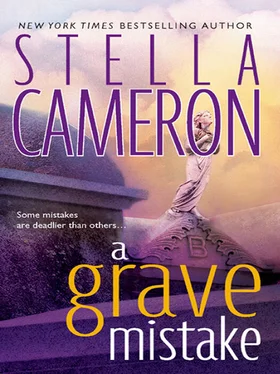
 www.mirabooks.co.uk
www.mirabooks.co.uk
